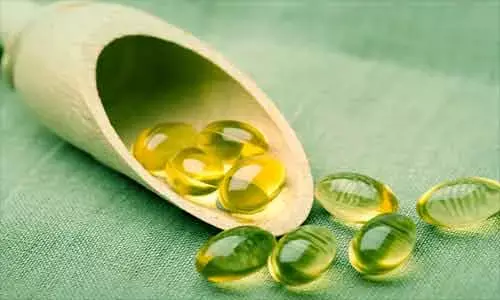- Home
- Medical news & Guidelines
- Anesthesiology
- Cardiology and CTVS
- Critical Care
- Dentistry
- Dermatology
- Diabetes and Endocrinology
- ENT
- Gastroenterology
- Medicine
- Nephrology
- Neurology
- Obstretics-Gynaecology
- Oncology
- Ophthalmology
- Orthopaedics
- Pediatrics-Neonatology
- Psychiatry
- Pulmonology
- Radiology
- Surgery
- Urology
- Laboratory Medicine
- Diet
- Nursing
- Paramedical
- Physiotherapy
- Health news
- Fact Check
- Bone Health Fact Check
- Brain Health Fact Check
- Cancer Related Fact Check
- Child Care Fact Check
- Dental and oral health fact check
- Diabetes and metabolic health fact check
- Diet and Nutrition Fact Check
- Eye and ENT Care Fact Check
- Fitness fact check
- Gut health fact check
- Heart health fact check
- Kidney health fact check
- Medical education fact check
- Men's health fact check
- Respiratory fact check
- Skin and hair care fact check
- Vaccine and Immunization fact check
- Women's health fact check
- AYUSH
- State News
- Andaman and Nicobar Islands
- Andhra Pradesh
- Arunachal Pradesh
- Assam
- Bihar
- Chandigarh
- Chattisgarh
- Dadra and Nagar Haveli
- Daman and Diu
- Delhi
- Goa
- Gujarat
- Haryana
- Himachal Pradesh
- Jammu & Kashmir
- Jharkhand
- Karnataka
- Kerala
- Ladakh
- Lakshadweep
- Madhya Pradesh
- Maharashtra
- Manipur
- Meghalaya
- Mizoram
- Nagaland
- Odisha
- Puducherry
- Punjab
- Rajasthan
- Sikkim
- Tamil Nadu
- Telangana
- Tripura
- Uttar Pradesh
- Uttrakhand
- West Bengal
- Medical Education
- Industry
Vitamin E effective, safe treatment for NASH in HIV patients

Montreal, Canada: HIV-infected patients are at increased risk of nonalcoholic steatohepatitis (NASH). Vitamin E is recommended for the treatment of NASH in the general population. However, its safety and efficacy among HIV-infected patients remain unknown.
Researchers at McGill University Health Centre have found that nonalcoholic steatohepatitis that commonly affects patients with HIV can be safely treated with vitamin E.The study appears in the journal AIDS.
Nonalcoholic steatohepatitis (NASH) is a severe form of nonalcoholic fatty liver disease (NAFLD) and is characterized by liver inflammation and cell damage. It is a potentially dangerous condition that can progress to cirrhosis or liver cancer.
"Vitamin E has been shown to improve fatty liver in the general population," says the study's lead author Dr Giada Sebastiani, Associate Professor in the Department of Medicine, McGill University and scientist at the Research Institute of the McGill University Health Centre. "Here we provide evidence for its beneficial effect and safety in people living with HIV, who have a higher prevalence of the fatty liver disease."
Dr Sebastiani notes that NAFLD currently affects up to 48% of Canadians living with HIV and 25% of the general population, while NASH affects about one-third of patients with NAFLD. There are several theories to explain the high prevalence of fatty liver among HIV-positive patients, explains Dr Sebastiani: "It is possibly due to HIV-related inflammation, the antiretroviral drugs that they have to take lifelong, and to very frequent metabolic problems, such as diabetes and high lipids. Unfortunately, there is no approved therapy for fatty liver in people living with HIV."
In the study, 27 patients with HIV and NASH were given vitamin E in an easily-tolerated dose of two pills per day. "We found that vitamin E improved both liver transaminases (the main blood tests for liver function) and liver fat measured by a non-invasive ultrasonographic test," says Dr. Sebastiani. "These improvements were even more marked than those reported in the HIV-uninfected population." Although she suspected vitamin E would reduce inflammation and fat in the HIV-positive group, Dr Sebastiani was pleasantly surprised by the size of the effect.
Dr Sebastiani notes that because the study did not have the benefit of a control group, and the study group was small and had a short follow-up (24 weeks), it's considered a pilot project. "We would be interested in conducting a larger randomized controlled trial, with a longer follow-up," she says.
Dr Sebastiani came to McGill seven years ago from Italy with the goal of establishing a world-class research program focused on fatty liver and non-invasive diagnostic tools for liver disease. In the intervening years, cases of fatty liver disease, which was previously associated only with alcohol abuse, have exploded, particularly among obese Canadians. Dr Sebastiani predicts that NAFLD will become the leading cause of liver transplants in the next 10 years.
For further references log on to:
Dr Kamal Kant Kohli-MBBS, DTCD- a chest specialist with more than 30 years of practice and a flair for writing clinical articles, Dr Kamal Kant Kohli joined Medical Dialogues as a Chief Editor of Medical News. Besides writing articles, as an editor, he proofreads and verifies all the medical content published on Medical Dialogues including those coming from journals, studies,medical conferences,guidelines etc. Email: drkohli@medicaldialogues.in. Contact no. 011-43720751


